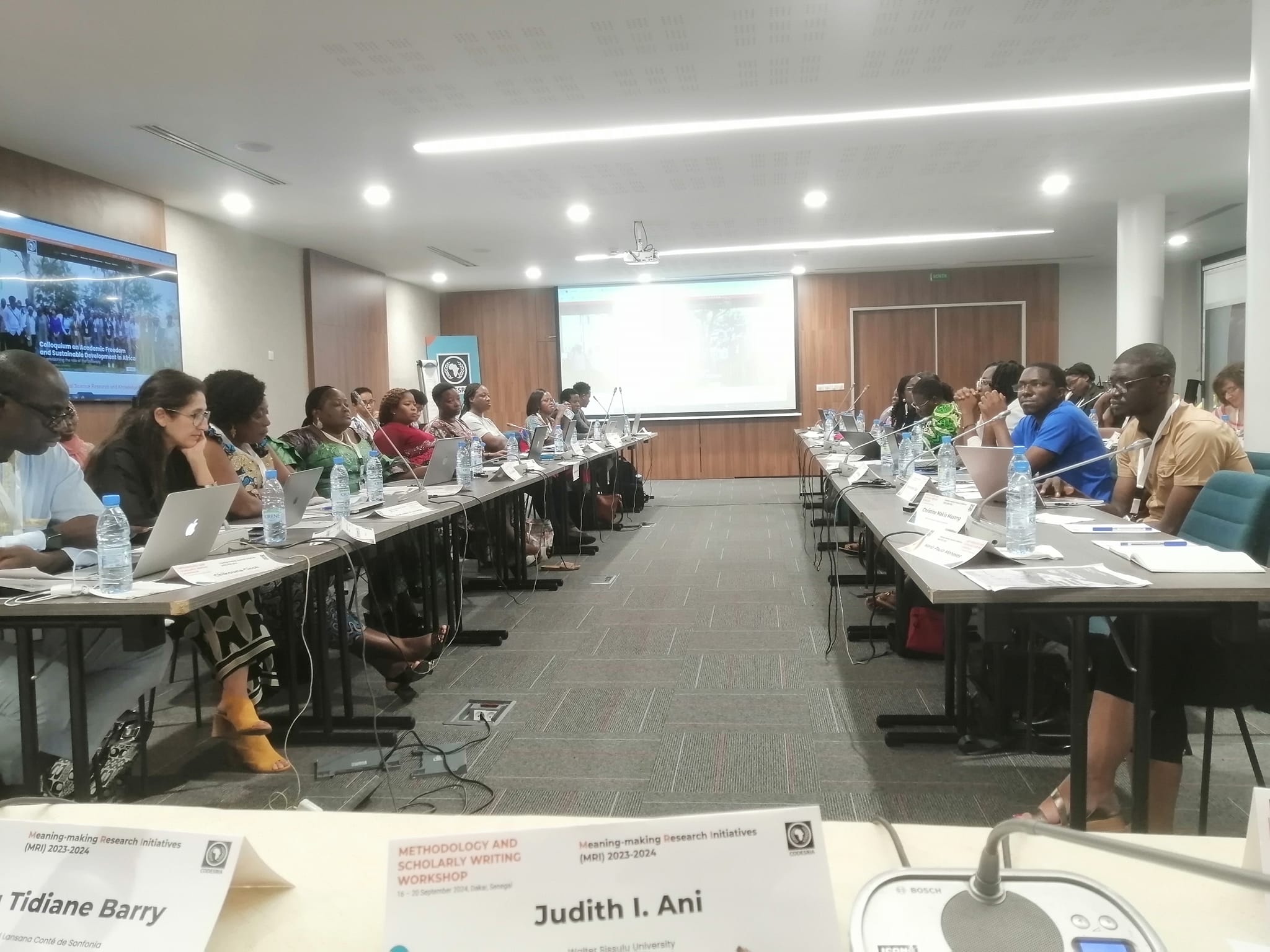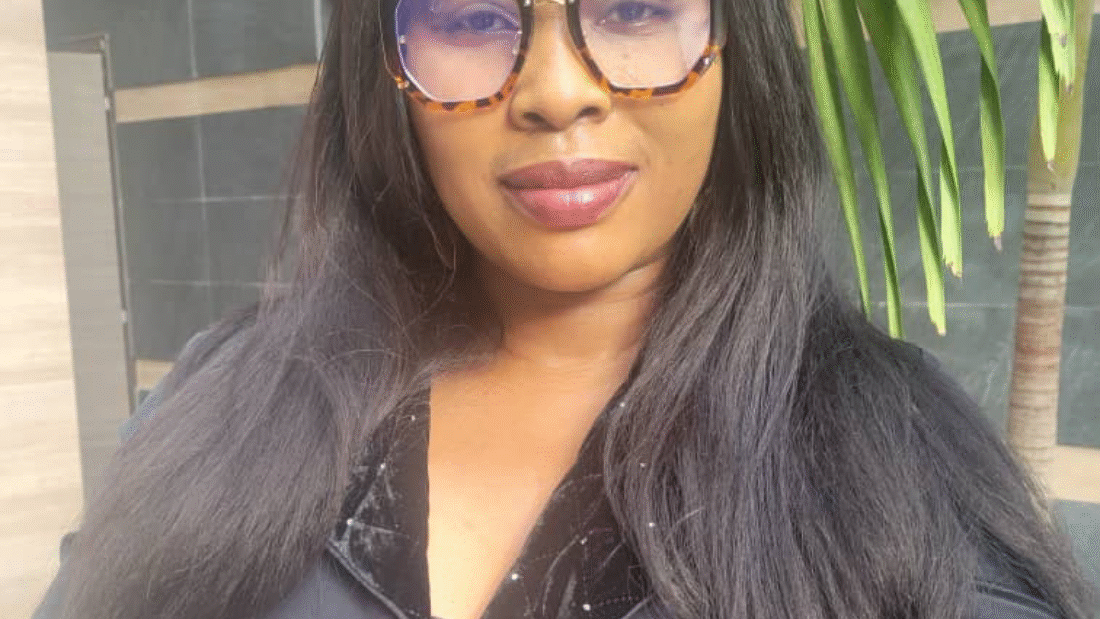DURBAN, SOUTH AFRICA – February 24, 2025 – At the Glotan–Durban University of Technology Joint Conference on Climate Change and Economic Management for a Sustainable Future, Dr. Judith Ifunanya Ani, delivered one of the most engaging and impactful sessions of the event. With her extensive background in research and grant writing, Dr. Ani facilitated a session titled “Writing Grant-Winning Proposals,” equipping participants with practical strategies and fresh perspectives on how to secure competitive funding for high-impact projects.

The conference itself brought together a diverse mix of academics, researchers, policymakers, and development practitioners, all focused on tackling the twin challenges of climate change and sustainable economic growth. Within this context, Dr. Ani’s session stood out as particularly timely—emphasizing that good research ideas alone are not enough; without strong proposals and effective grant-seeking strategies, valuable innovations often remain unfunded and unrealized.

Breaking Down the Essentials of Proposal Writing
Dr. Ani structured her facilitation around the key building blocks of a successful grant application, guiding participants step by step through the process:
- Pre-Proposal Planning: She emphasized the importance of preparation before even beginning to draft, including understanding eligibility requirements, carefully aligning projects with funder priorities, and paying close attention to timelines and submission deadlines.
- Structuring the Research Proposal: She unpacked the critical elements of a compelling proposal—articulating the motivation behind the study, framing clear and answerable research questions, presenting a sound methodology, and highlighting the project’s contribution to existing literature.
- Budgeting and Justification: Beyond ideas, funding agencies look for feasibility. Dr. Ani explained how to develop a well-structured, realistic budget that aligns with project goals, and how to justify costs in ways that demonstrate accountability and strategic planning.
- Common Mistakes to Avoid: From vague objectives to misaligned priorities, she highlighted the pitfalls that often lead to rejection, offering practical advice on how to spot and correct these errors.
- Dealing with Rejection: Perhaps the most inspiring part of her session was the emphasis on resilience. She shared from personal experience how even strong applications sometimes face rejection and reminded participants that unsuccessful attempts should be treated as stepping stones rather than dead ends.
Building Resilience Through Rejection
One of Dr. Ani’s strongest messages was about changing the way researchers think about rejection. Instead of viewing it as failure, she encouraged participants to see feedback from funders as a resource. “Every rejection carries within it the seed of a stronger proposal,” she shared, noting that persistence and the willingness to adapt are often what separate successful grant winners from those who give up too soon. This message resonated deeply with participants, many of whom openly shared their own struggles and frustrations with past applications.
An Interactive and Collaborative Session
Far from a one-way lecture, the session was highly interactive. Participants engaged actively, asking questions, sharing their experiences with grant writing, and reflecting on the barriers they had faced. The atmosphere was one of collaboration and mutual learning. Attendees expressed appreciation for Dr. Ani’s approachable teaching style, her ability to break down complex processes into simple, actionable steps, and the use of real-world examples drawn from her own journey as a researcher and mentor.
Several participants commented that the session demystified grant writing for them—transforming what previously felt like a daunting process into one that is manageable, structured, and, with practice, achievable. By the end of the workshop, many left with renewed confidence and practical insights they could immediately apply to their current and future projects.
Strengthening Research Capacity for Sustainable Impact
Dr. Ani’s contribution to the conference extended beyond technical training—it reflected her broader commitment to capacity building within the academic and research community. By equipping researchers with the tools to write stronger proposals, she is also helping to unlock resources that can fuel innovative solutions to pressing challenges such as climate change, sustainable development, and community resilience.
Her facilitation aligned seamlessly with the goals of the conference: fostering collaboration, enhancing research excellence, and ensuring that ground-breaking ideas are not lost due to lack of funding. In doing so, she reinforced her reputation not just as a researcher, but as a mentor and advocate for sustainable impact in Africa and beyond.

Looking Ahead
As participants continue to apply the lessons learned from her workshop, the ripple effects of Dr. Ani’s facilitation are likely to be felt long after the conference. Stronger proposals mean more funded projects, and more funded projects mean greater opportunities to address the urgent social and environmental challenges facing communities today.
Her session was more than a technical training—it was a call to action, reminding researchers that persistence, preparation, and strategic communication are key to turning ideas into impact.
In taking on this role, Dr. Judith Ifunanya Ani not only strengthened the skills of fellow scholars but also underscored her own commitment to advancing research excellence, sustainability, and mentorship within the academic world.

